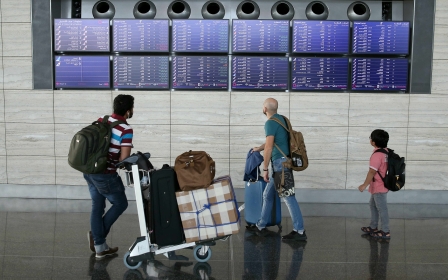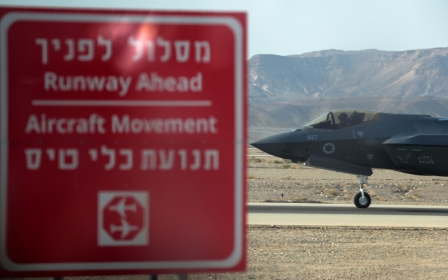Qatar to hold first national elections in October 2021: Emir

Qatar's Emir said the Gulf State will hold an unprecedented election for its advisory Shura council in October 2021 after years of delays.
The proposed vote will be for two-thirds or 30 of the 45 members of the Shura council. The Emir would appoint the remaining 15 members.
"This is an important step towards strengthening Qatari advisory traditions and developing the legislative process with wider citizen participation," Sheikh Tamim bin Hamad Al-Thani said, addressing the opening of the Shura Council.
"We have our solid system rooted in the structure of our society and... it is not a multi-party system, but rather an emirate system based on established traditions of fair and rational governance."
Last year, Sheikh Tamim ordered a committee be established to organise the election.
New MEE newsletter: Jerusalem Dispatch
Sign up to get the latest insights and analysis on Israel-Palestine, alongside Turkey Unpacked and other MEE newsletters
The currently un-elected Shura Council advises the absolute ruler, Sheikh Tamim, on draft laws but does not create its own legislation and can be overruled by a simple decree.
October's vote would be Qatar's first national election, although Qataris have previously been able to cast ballots on constitutional reforms and in elections to a nationwide municipal council.
Cautious reform
Elections to the Shura council, required under the country's 2004 constitution, have been postponed repeatedly and the body's members have instead been directly appointed by the Emir.
Qatar has undergone cautious reform on issues, including democracy, workers' rights and representation of women since Sheikh Tamim came to power in 2013.
It was not immediately clear what eligibility requirements, such as a minimum age, Qatari citizens would have to meet to be able to vote. In neighbouring United Arab Emirates, voters are selected by the country's rulers.
Kuwait and Bahrain both have elected parliaments, which have some influence, though ultimate decision-making rests with the rulers of the Gulf Arab states.
Middle East Eye delivers independent and unrivalled coverage and analysis of the Middle East, North Africa and beyond. To learn more about republishing this content and the associated fees, please fill out this form. More about MEE can be found here.




